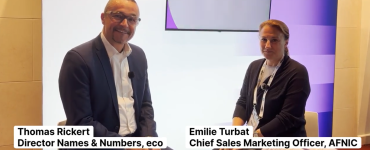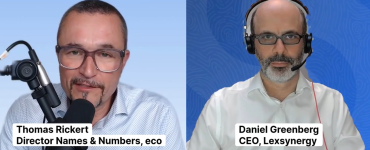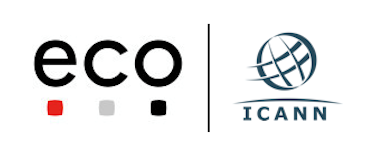Scraps With Board Over New Queries
Reproduced with permission from Electronic Commerce & Law Report, 20 ECLR 895 (June 24, 2015). Copyright 2015 by The Bureau of National Affairs, Inc. (800-372-1033) <http://www.bna.com>
The Cross-Community Working Group on Enhancing ICANN Accountability has backtracked away from a controversial membership proposal, the group’s co-chairs said June 22.
The CCWG-Accountability draft plan that recently completed a public comment period called for the Internet Corporation for Assigned Names and Numbers’ supporting organizations and advisory committees (SO/ACs) to create alter ego unincorporated associations that would become statutory members of ICANN under California law (20 ECLR 683, 5/13/15). Statutory membership is a vehicle provided for nonprofit public benefit corporations to provides checks on board authority. This so-called ‘‘reference model’’ proved complex, confusing and problematic for certain stakeholders. Governments raised sovereignty issues over participation in an organization created under U.S. law (20 ECLR 817, 6/10/15). And other comments suggested that a membership organization is philosophically at odds with multistakeholder governance.
Co-chair Thomas Rickert, a GNSO councilor and director of eco — Association of the German Internet Industry, told Bloomberg BNA the reference model is off the table in favor of a more ‘‘lightweight’’ approach.
The new approach maintains all of the community empowerment mechanisms of the existing proposal, with the SO/ACs exercising their powers directly rather than through alter egos. The purpose of the alter egos was to create legal personhood to make those powers enforceable in court as a last resort. The community empowerment mechanisms include rejection of certain bylaws changes, budget and strategic plan, as well as the ability to recall board members individually or collectively.
Many on the CCWG-Accountability now believe, however, that legal personhood is attainable without creating new mechanisms. Because personhood is based on intent to associate, in the event of a future situation requiring enforcement of the mechanisms, individual SO/ACs could choose at that time to declare an intent to associate. In the meantime they could utilize the community empowerment mechanisms through a voluntary, cooperative approach as the CCWG hopes to enshrine in ICANN’s bylaws.
The CCWG-Accountability issued a June 20 communique in which it introduced the Empowered SO/AC model and said that its comment analysis showed broad support for its overall proposed accountability architecture.
The CCWG-Accountability has yet to achieve consensus on this ‘‘Empowered SO/AC’’ model. Its second draft proposal is expected to be released for public comment in late July.
Board, CCWG Spar, Then Make Up.
Questions posed June 19 by the ICANN board raised the ire of some CCWG-Accountability members, who saw them as obstructionist and two weeks late. The board sent the group 88 questions, many of them containing subquestions, on the eve of the groups day-long face-toface working session.
‘‘ICANN had a surprise for our group when we arrived in Buenos Aires,’’ Steve DelBianco, executive director of NetChoice and a CCWG member representing the Business Constituency in the GNSO, told Bloomberg BNA, ‘‘and it was 156 questions regarding our draft proposal. Meanwhile we had already finished the laborious process of analyzing all the public comments that came in by the comment deadline, so these questions hadn’t even been looked at yet.’’
DelBianco called many of the questions ‘‘vexatious,’’ designed to convey dissatisfaction or doubt regarding the draft proposal, and said the group was frustrated over the need to revisit its comment analysis.
‘‘If a gauntlet of 156 questions like this had been put in front of ICANN 17 years ago, I doubt we could have ever gotten it off the ground,’’ DelBianco said.
Board member Chris Disspain told the group he had only just received the questions, which led DelBianco to believe—and which he said he later confirmed—that the questions came from ICANN’s legal team rather than the board itself.
‘‘This really made me upset, because if ICANN Legal wrote the questions, then ICANN Legal should have submitted them to the CCWG, not the Board,’’ DelBianco said. ‘‘I know the Board has a fiduciary duty to the corporation, but th eBoard is constantly reminding me that they also have a duty to the core values of ICANN and the community at-large. If that’s the case, why would they rubber-stamp questions from ICANN Legal that are clearly designed to protect the corporation from the community.’’
The board and the CCWG-Accountability met together on June 21, and the tone was clearly dialed down, with the board disclaiming any intention to interfere with the group’s accountability efforts.
‘‘There’s a natural assumption that there’s a tension between the Board and the community with respect to this process,’’ chariman of the board Steve Crocker said. ‘‘It’s just not true, at least not from our side.’
Board member Ram Mohan, chief technology officer of Afilias Ltd., attempted to place the board’s question submission into context.
‘‘When we provided the detailed questions, it was and is to identify potential side effects or areas that could use some simplification, and also to identify questions that might arise in political processes once the proposal gets submitted, with intent of ensuring that there are clear answers to those questions,’’ Mohan said.
BY JOSEPH WRIGHT
To contact the reporter on this story: Joseph Wright in Buenos Aires at jwright@bna.com
To contact the editor responsible for this story: Thomas O’Toole at totoole@bna.com



